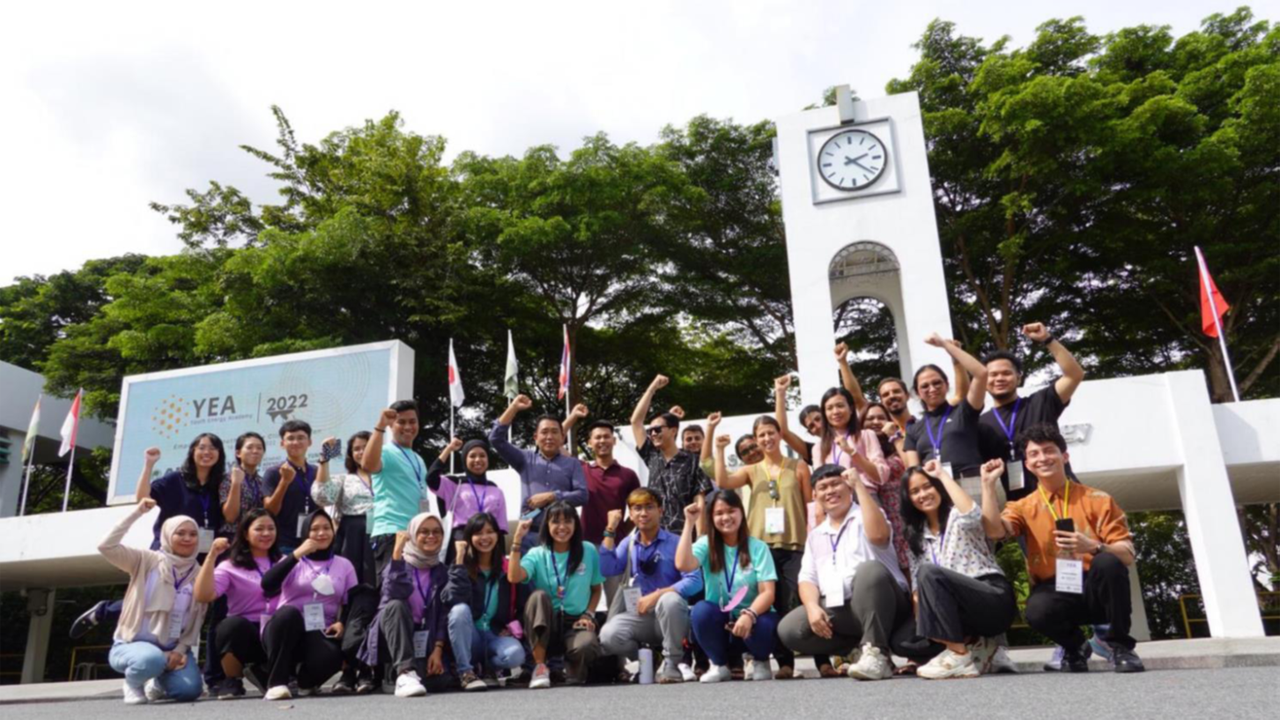Youth Energy Academy 2022
10-16 October 2022
Pathumthani, Thailand

The fourth edition of the Youth Energy Academy in Asia was held from 10 – 16 October 2022 at the Asian Institute of Technology, Thailand. The programme convened 24 youth from seven countries in south and southeast Asia to equip them with skills to design and implement sustainable energy projects at the community level.
The seven-day intensive programme combined morning theory sessions including presentations and design thinking exercises, with practical afternoon sessions including tutorials and hands on do-it-together workshops to design and build simple solar and electronic systems. Site visits in the vicinities of AIT allowed participants to learn about renewable energy applications and interact with practitioners.
During the week, selected teams worked on a series of design thinking exercises and consultations aimed to refine their project ideas, which were pitched to a small jury on the last day to compete for a YEA Small Grant Award of EUR1000 and virtual mentoring calls after the programme.
|
TEAM |
PROJECT IDEA |
| Bridge the Gap | Green energy awareness programme for teens in Cambodia |
| GAWIREA: Girls and women in renewable energy academy | Building renewable energy capacities of women in remote areas of Indonesia |
| Kalasag Pinas | Adla: Solar-powered light, charging, and Wi-Fi station for disaster relief in the Philippines |
| Mountain Support (Grant Award Recipient) | Happy schools: energizing off-grid schools meaningfully through collaboration in the Philippines |
| Shubham | Solar-sourced sand battery heating system for families in Nepal |
| South Sky | Matahari: solar study kit, Malaysia
|
The YEA 2022 was carried out in close partnership and collaboration with experts and partners including from the AIT Department of Energy, Environment and Climate Change, Yunus Centre AIT, AIT Community Farm, Yunus Thailand, Klong 6 Community Learning Center in Pathum Thani, Chiangmai University’s Energy Technology for Environment Research Centre, Austrian Biomass Association, and other guest speakers who have contributed with their time and expertise.
The programme was financially supported by the Regional Project Energy Security and Climate Change Asia-Pacific of the Konrad-Adenauer-Stiftung (KAS) and executed by The AIT Regional Resource Centre for Asia and the Pacific (AIT RRC.AP) in partnership with the Sustainable Energy Youth Network (SEYN).
